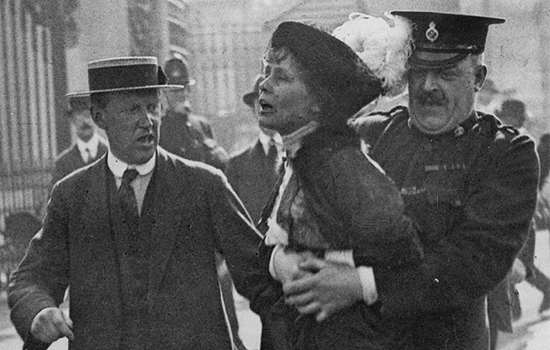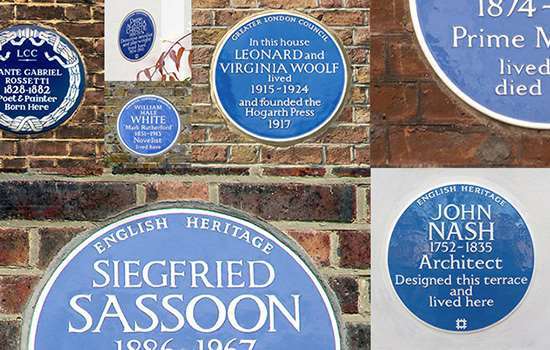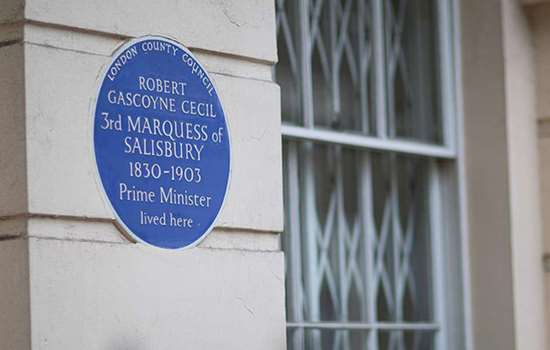Thelwall, John (1764-1834)
Plaque erected in 2018 by English Heritage at 40 Bedford Place, Bloomsbury, London , London Borough of Camden, WC1B 5JT, London Borough of Camden
All images © English Heritage
Profession
Political Orator, Writer, Elocutionist
Category
Medicine, Politics and Administration
Inscription
JOHN THELWALL 1764-1834 Political Orator, Writer and Elocutionist lived and worked here 1806-1813
Material
Ceramic
John Thelwall was a radical orator who campaigned for democratic reform, universal suffrage and freedom of speech. He was also an influential writer, a friend of the Romantic poets, and a pioneering speech therapist. He is commemorated with a blue plaque at 40 Bedford Place in Bloomsbury, where he opened an institution for oratory and elocution in 1806.
RADICAL ORATOR
John Thelwall took the opportunity to study oratorical skills while apprenticed to an attorney in the Inner Temple. At school he had struggled with a lisp, but by 1783 he was a regular speaker at the public debates held at Coachmakers’ Hall. He soon became one of the most popular and effective and orators of his day, with William Hazlitt likening his style to a ‘volcano vomiting out lava’.
Against the backdrop of the French Revolution, Thelwall became increasingly radical in his political outlook. He opposed the government’s decision to declare war on France in 1793 and became a leading voice in the campaign for democratic reform in Britain. Hundreds of people flocked to hear ‘Citizen’ Thelwall’s lectures, which he gave twice weekly, dodging arrest and moving from one venue to another. The danger was so great that he reportedly said he took the precaution
to render my hat-crown cudgel proof, and to carry in my own hand a short tuck-stick, to defend myself with, in case of extremity.
Thelwall was arrested and charged with treason in May 1794, along with other leaders of the reform movement. Imprisoned in the Tower and then in Newgate, Thelwall went on trial in December and – defended by Thomas Erskine – was acquitted, along with his fellow defendants.
Remarkably Thelwall resumed his political lectures, and even the ‘gagging acts’ of December 1795 could not silence him. An attempt to press-gang him into the navy while lecturing in Great Yarmouth, however, finally persuaded him to abandon politics.
THE ROMANTICS
In 1797 Thelwall embarked on a walking tour from London to the west of England and formed a ‘most philosophical party’ with Samuel Taylor Coleridge, William Wordsworth and Dorothy Wordsworth. As a writer Thelwall formed a direct link between the Romantic poets and the radical movement, and he was later praised by Coleridge as ‘intrepid, eloquent, and honest; perhaps the only acting democrat that is honest.’
Inspired to find solace in a rural retreat of his own, Thelwall set up home with his family on a farm in the Wye valley, where he wrote Poems Chiefly Written in Retirement (1801) and his only novel, The Daughter of Adoption (1801). He struggled to make a living from the land, however, and was grief-stricken following his daughter’s death in 1799. He resumed lecturing, this time on the subject of elocution and oratory, and in 1806 returned to London to set up a school to treat pupils with speech impediments.
BLOOMSBURY PIONEER
From his home at 40 Bedford Place in Bloomsbury, Thelwall made a pioneering contribution to the practice of elocution and speech therapy. He published his Vestibule of Eloquence (1808), which summarises his plan of education, and his celebrated Letter to Henry Cline (1810), which contains a number of case studies. Combining a medical understanding of the physical origins of speech impediments with a therapeutic approach to their alleviation or cure, he linked his speech therapy work with his political interests, calling it the ‘enfranchisement of fettered organs’.
Indeed the lure of politics was too much for Thelwall. As the new owner–editor of the journal The Champion he called for parliamentary reform, denounced the government’s actions in the Peterloo massacre, and voiced scepticism about the Cato Street conspiracy. His institution – now at Lincoln’s Inn Fields – closed soon after and Thelwall was briefly arrested again in 1821. He edited The Monthly Magazine and a new journal, The Panoramic Miscellany, and continued touring and lecturing, despite growing health problems. He died in Bath on 17 February 1834, aged 69.


